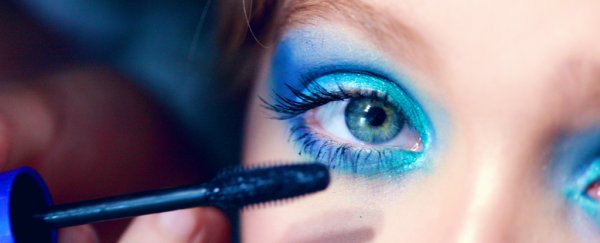When was the last time you checked the use-by date of your makeup? Or washed your brushes and sponges? If the answer is "never" or even "a while ago", you could be smearing infectious bacteria on your skin every time you apply your warpaint.
A new study of makeup in the UK found that up to 90 percent of used products could be crawling with potentially deadly microbes such as Staphylococcus aureus, Escherichia coli and Citrobacter freundii.
Biomedical scientists Amreen Bashir and Peter Lambert of Aston University in the UK examined four kinds of makeup, lipstick, lip gloss, eyeliner and mascara, and found alarmingly high levels of bacterial contamination. The higher the water content, the higher the likelihood of contamination.
Of particular note were 'blender' sponges, a type of egg-shaped makeup applicator that has become popular in recent years for applying foundation and contouring. These were the worst offenders, with the highest rate of fungal contamination.
In total, the team examined 467 products - 96 lipsticks, 92 eyeliners, 93 mascaras, 107 lip glosses and 79 blender sponges.
"Cosmetic regulations clearly state that products should not contain pathogenic organisms," the researchers wrote in their paper. Yet, "70 to 90 percent of all used products were contaminated with bacteria."
To try to find out why, the team also conducted a questionnaire to study the makeup habits of the users of these products. And, unsurprisingly, they found that the problem is likely a user error.
Makeup doesn't go 'off' like food. But the use-by dates aren't just there for funsies; the date on the packaging indicates the length of time preservatives in the product are expected to keep bacterial contamination at bay. How this information is conveyed varies regionally; the US, for example, has no regulations requiring expiry information on makeup packaging.
A 2013 study found that most users will keep using makeup after the expiry date, anyway. Of an admittedly small sample of 44 students in Brazil, 97.9 percent admitted that they had continued to use their makeup after it had expired.
That's not great, but the blender sponges? That's where it gets truly gross.
In the questionnaire, 93 percent of respondents admitted they had never washed their blender, and 64.4 percent said they had dropped it on the floor and continued to use it afterwards.
Even if they are washed, there's still a significant risk, the researchers said.
"[Foundation] blenders have only been recently introduced as an application product and limited information is available on how best to use or clean them. Our results have shown that these products carried the highest bacterial load during use and more than a quarter were contaminated with Enterobacteriaceae," they wrote in their paper.
"Blenders can be cleaned with warm, soapy water, therefore encouraging microbial proliferation if not dried."
The research, they said, shows that cosmetics companies and regulatory bodies could and should be doing more to caution customers about appropriate makeup safety. In particular, the researchers were concerned about bacteria such as E. coli, which is usually linked to faecal contamination.
"More needs to be done to help educate consumers and the make-up industry as a whole about the need to wash [makeup] blenders regularly and dry them thoroughly, as well as the risks of using make-up beyond its expiry date," Bashir said.
And, while we're on the subject: Never, ever buy counterfeit cosmetics.
The research has been published in the Journal of Applied Microbiology.
